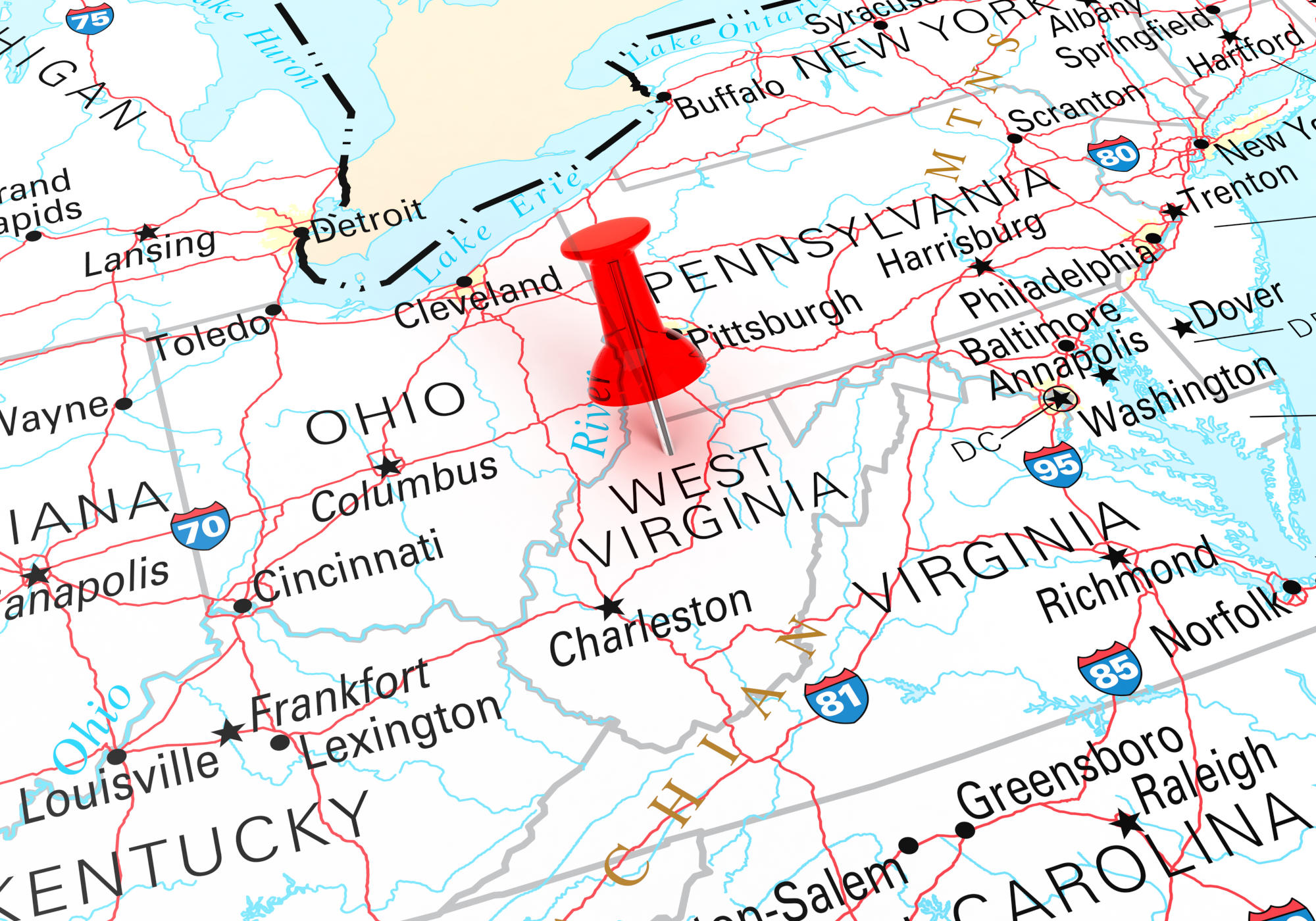West Virginia Homeschool Laws
Download Your Guide to Homeschooling in West Virigina Using State Funding
West Virginia Homeschooling Laws, Information, and Resources
If you’re living in West Virginia and are looking into homeschooling, you’re in the right place! This page provides the resources and information you need to determine whether<strong> homeschooling in West Virginia</strong> is right for you.
Speak to a West Virginia Homeschooling ExpertWV Homeschooling Laws at a Glance
- Options for Homeschooling: 3
- School Required for Ages: 6-17
- Notification Required: Yes
- Teacher Qualifications: Yes
- State Mandated Subjects:Yes
- Assessment requirements: Yes, for options 2 and 3
- Immunization requirements: No
Summary of West Virginia Homeschool Laws
Knowing the requirements for West Virginia homeschooling is one key to successful homeschooling. Below is a summary of the homeschool laws in the state of West Virginia. You can find additional information on Home School Legal Defense Association’s (HSLDA) website as well: West Virginia HSLDA Reference
- Homeschooling through school board approval.
- Homeschooling by submitting a notice of intent.
- Homeschooling by participation in a learning pod.
There are three homeschooling options for parents to consider in West Virginia.
Homeschooling through school board approval.
If you choose to seek approval from your local school board, you will be required to teach the subjects approved by the school board for 180 days per year to meet West Virginia homeschool curriculum requirements. Instruction must be in a place approved by the board and for a time equal to the school term of the county. If requested, you must provide attendance, instruction, and progress information, and the school board may deny approval in writing for “good and reasonable justification.” The board also determines the method of assessment you must use in your homeschool. This method may not be for everyone.
Homeschooling by submitting a notice of intent. You can also homeschool by submitting a notice that means certain requirements to the school board or superintendent. To do so, you must follow these requirements:
- The adult doing the instruction must have a high school diploma or equivalent, or a post-secondary degree or certificate from a regionally accredited institution.
- Submit a notice of intent that includes the child’s name, address, and age. Within this notice, you must confirm your intent in teaching reading, language, math, science, and social studies, and that you’ll assess the student yearly. When filing the intent, you’re also required to provide evidence of the instructor’s qualifications as mentioned in #1. This notice must be submitted on or before the date you start homeschooling. This notice of intent remains effective until you stop homeschooling or you move to a different county.
- You must assess the student every year that you homeschool. Once you obtain an assessment, you should maintain copies of it for three years. There are four option to assess your child:
a. Use any nationally normed, standardized achievement test administered by someone qualified according to the test publisher. The test must cover reading, language, math, science, and social studies. If your child scores in the 23rd percentile or higher, or his/her score has improved since the previous year’s assessment results, this is considered “acceptable progress” under the law.
b. Participate in the public school testing program. Acceptable progress is based on the state’s testing program guidelines.
c. Obtain a written statement that indicates a certified teacher has reviewed a portfolio of your child’s work and deemed the progress to be in accordance with the child’s abilities. This must include progress in the areas of reading, language, math, science, and social studies.
d. You may administer any alternative academic assessment of proficiency as long as the superintendent agrees.
Homeschooling by participation in a learning pod.
Parents can follow the mandatory attendance rule by deciding to join a learning pod. They can do this by informing their local superintendent of their choice to participate in a learning pod through a notice of intent.
-
- Submit a notice of intent that includes the child’s name, address, and age. Within this notice, you must confirm your intent in teaching reading, language, math, science, and social studies, and be assessed annually. When filing the intent, you’re also required to provide evidence of the instructor’s qualifications as mentioned in #1. This notice must be submitted on or before the date you start pod learning. This notice of intent remains effective until you stop homeschooling or you move to a different county.
- If you’ve chosen the Notice of Intent or Learning Pod options for homeschooling, you must arrange for an assessment each year and keep copies of the assessment for three years. There are four assessment options available:
- You can opt for any nationally standardized achievement test that has been published within the last ten years. This test must be administered by a qualified individual according to the instructions provided by the test publisher. It should cover subjects such as reading, language, mathematics, science, and social studies. A child who scores in the 4th stanine (23rd percentile) or higher, or shows improvement from the previous year, is considered to have made “acceptable progress” under the law.
- You may choose to participate in the public school testing program, with acceptable progress determined based on the state testing program guidelines.
- Another option is to provide a written narrative from a certified teacher who has reviewed a portfolio of your child’s work. This narrative should assess the child’s academic progress in reading, language, math, science, and social studies. It should also identify areas where improvement or remediation may be needed.
- With superintendent approval, your child may complete an alternative academic proficiency assessment. Acceptable progress will be determined through an agreement between the superintendent and the parents.
-
Whether you’re considering homeschooling for the first time or are already homeschooling in West Virginia and looking for more information, we’ll help answer some common questions.
Do you get paid to homeschool your child in West Virginia? West Virginia offers state-funded resources to help pay for homeschooling costs. The West Virginia Hope Scholarship is an educational savings account designed for West Virginia’s K-12 students to pursue education outside of the traditional public school classroom—including at home. Learn more about getting paid to homeschool in West Virginia.
Here you’ll find websites for any questions you may have about West Virginia homeschooling.
- West Virginia Department of Education: https://wvde.us/
- West Virginia State Government – Education: https://www.wv.gov/pages/education.aspx
- West Virginia Education Association: https://www.wvea.org/
- West Virginia Christian Education Association: https://www.wvcea.org/
- West Virginia Board of Education: https://wvde.state.wv.us/boardgoals/
- List of West Virginia school districts: https://ballotpedia.org/List_of_school_districts_in_West_Virginia
Whether you are already homeschooling in WV or are looking to do so, these resources are quite useful if you’re searching for support, co-ops, or answers to questions about homeschooling in your state.
- Christian Home Educators of West Virginia: https://chewv.org/
- Harrison County Christian Homeschoolers: https://www.facebook.com/groups/clarksburghomeschoolersrock/
- Ritchie County Homeschool Group: https://www.facebook.com/groups/rcche/
- West Virginia Home Educators’ Association: https://www.wvhea.org/
One of the many benefits of homeschooling in WV is the flexibility to explore! Here are some ideas for amazing–and educational–field trips around the great state of West Virginia!
- Children’s Museum of the Ohio Valley: Wheeling, WV
- Clay Center for the Arts and Sciences: Charleston, WV
- Grave Creek Mound Archaeology Complex: Moundsville, WV
- Marshall University Geology Museum: Huntington, WV
- Morgantown History Museum: Morgantown, WV
- Museum of Radio and Technology: Huntington, WV
- Oglebay’s Good Zoo & Benedum Planetarium: Wheeling, WV
- West Virginia Independence Hall: Wheeling, WV
- WV Division of Culture and History – The Cultural Center: Charleston, WV







